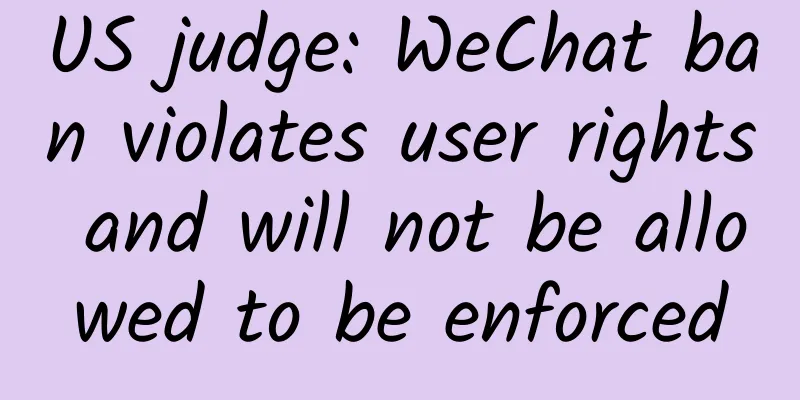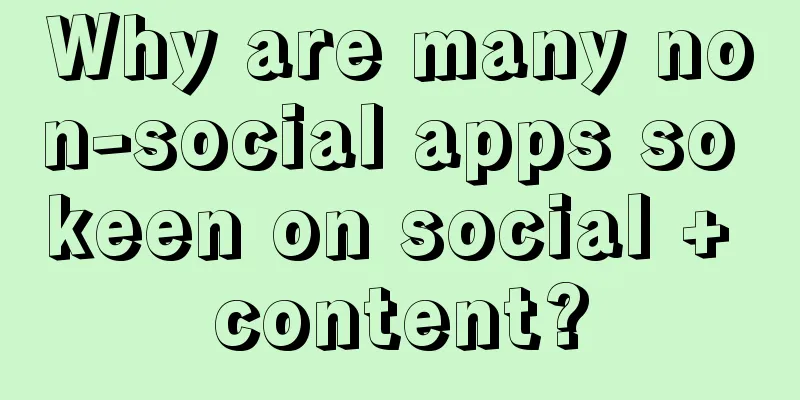US judge: WeChat ban violates user rights and will not be allowed to be enforced

|
After a U.S. district court urgently halted the U.S. government's WeChat ban, a judge said on the 15th local time that she was unlikely to allow the ban on WeChat to continue while the U.S. government appealed the previous ruling. The judge pointed out that the ban would infringe on the free speech rights of millions of Americans who rely on the app. According to Bloomberg and other media reports on the 15th, U.S. District Court Judge Laurel Beeler of San Francisco said at a hearing held that day that the additional evidence provided by the Department of Justice on the grounds of "national security concerns" did not change her mind. She still believes that the relevant ban will infringe on the free speech rights of millions of Chinese-speaking Americans who rely on the app. Beeler also said that sending messages on WeChat is not illegal: "Activities on this platform are not illegal activities." At the hearing, Beeler did not make a final decision on the U.S. government's request. US media pointed out that more than 19 million Americans use Wehchat to communicate with their relatives and friends in China. In early August, US President Trump signed two executive orders, respectively imposing restrictions on TikTok, an overseas video platform of China's ByteDance, and WeChat, a social communication software of Tencent. The US Department of Commerce has stated that starting from September 20, it will be illegal to download WeChat on the US App Store platform, and users who already have the app will be restricted from downloading software updates. Subsequently, the US WeChat user organization "US WeChat User Alliance" filed a lawsuit, and Judge Biller stopped the WeChat ban on September 20. She said she agreed with the views of American users and believed that these restrictions may violate the rights of users granted by the First Amendment of the US Constitution. A spokesperson for the Chinese Ministry of Foreign Affairs responded to the WeChat ban by saying that the relevant companies conduct business activities in the United States in accordance with market principles and international rules and abide by U.S. laws and regulations. The United States frequently abuses its state power and unreasonably suppresses relevant companies under the pretext of national security. This is a naked act of hegemony, and China firmly opposes it. China has noticed that many people in the United States and people from the international community have recently criticized and questioned the United States' actions. The United States is willing to harm the rights and interests of the vast number of American users and companies, put its own selfish interests above market principles and international rules, and engage in political manipulation, which will eventually backfire. China urges the United States to listen carefully to the voices of the domestic and international communities in the United States, correct its mistakes, refrain from politicizing economic issues, stop suppressing relevant companies, and provide a fair, just and non-discriminatory environment for the normal operation and investment of companies from all countries. |
<<: Will the signal of iPhone 12, the lightest and thinnest 5G mobile phone, be good?
Recommend
What do you think is the difference between healthy concentrated juice and fruit?
Many places have entered summer early this year. ...
Can eating peanuts soften blood vessels? Are peanuts soaked in vinegar more nutritious? Answered in one article →
As the saying goes, "eat sprouts in spring, ...
Light bulbs to connect to the internet? Researchers want to use LEDs as routers
Nowadays, WiFi has become an indispensable thing ...
Save and forward! You must know this guide to disaster prevention and risk avoidance during the flood season!
Late July to early August every year It is one of...
Can egg freezing technology, with a pregnancy rate of only 4-12%, really achieve reproductive freedom?
Editor’s Note: At this year's two sessions, t...
2015 App Store Submission Review Guide (Part 1)
Introduction: When uploading new products to the ...
This makeup habit of girls is secretly bringing tens of thousands of bacteria
A study by Aston University in the UK found that ...
Advertising tips for wedding photography agencies!
During the epidemic, the wedding photography indu...
Why are fish still alive when they are placed in a sealed plastic bag?
Your browser does not support the video tag When ...
How long does it take to buy an iPhone 11 Pro? It only takes 5 days' wages in Switzerland, 6 days in the United States, and how about in China?
Hello, everyone, welcome to this news! As we all ...
Himalaya FM-AARRR traffic funnel model analysis report!
With the rise of knowledge payment, audio payment...
"Dragon and egg coexistence" wonder! A 190 million-year-old dinosaur egg nest was discovered →
Recently, paleontologists discovered a special di...
In the tech world full of swagger and extravagance, what is real innovation?
[[154439]] In recent years, the competition in th...
How much does it cost to develop a men's clothing mini app in Wuzhong?
WeChat Mini Program is an application that users ...
What is SEO keyword domination? How effective is keyword dominance?
Recently, many friends have asked: What does keyw...









